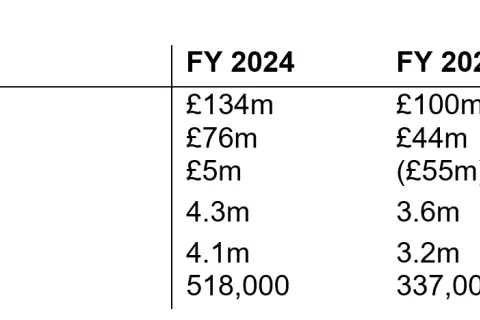
City communications
ABERDEEN BECOMES ONE OF UK’s BEST CONNECTED CITIES AS CITYFIBRE’S PRIMARY-BUILD COMPLETES
20 February 2025
The Government has launched a consultation on fresh changes to the Investigatory Powers Act (IPA) - nicknamed the Snoopers’ Charter - following the ruling late last year by the Court of Justice of the European Union (CJEU) that much of the legislation is unlawful. As regular readers of our blog will know, Entanet has repeatedly voiced concerns about the IPA and in particular its obvious inability to coexist with further legislation such as GDPR and the new Data Protection Bill. How can the Government insist on ISPs collating masses of data on one hand, yet give users improved rights such as the ‘right to be forgotten’ on the other? Not to mention the issues of privacy invasion and data security.
 Paul Heritage-Redpath, Product Manager[/caption]
The Government has launched a consultation on fresh changes to the Investigatory Powers Act (IPA) - nicknamed the Snoopers’ Charter - following the ruling late last year by the Court of Justice of the European Union (CJEU) that much of the legislation is unlawful.
As regular readers of our blog will know, Entanet has repeatedly voiced concerns about the IPA and in particular its obvious inability to coexist with further legislation such as GDPR and the new Data Protection Bill. How can the Government insist on ISPs collating masses of data on one hand, yet give users improved rights such as the ‘right to be forgotten’ on the other? Not to mention the issues of privacy invasion and data security.
Paul Heritage-Redpath, Product Manager[/caption]
The Government has launched a consultation on fresh changes to the Investigatory Powers Act (IPA) - nicknamed the Snoopers’ Charter - following the ruling late last year by the Court of Justice of the European Union (CJEU) that much of the legislation is unlawful.
As regular readers of our blog will know, Entanet has repeatedly voiced concerns about the IPA and in particular its obvious inability to coexist with further legislation such as GDPR and the new Data Protection Bill. How can the Government insist on ISPs collating masses of data on one hand, yet give users improved rights such as the ‘right to be forgotten’ on the other? Not to mention the issues of privacy invasion and data security.
With network projects in over 60 cities and construction underway to reach up to 8 million homes

City communications
20 February 2025

Corporate news
CityFibre, the UK’s largest independent full fibre platform, provides a financial and operational update for the year ended 31 December 2024
11 February 2025

City communications
4 February 2025